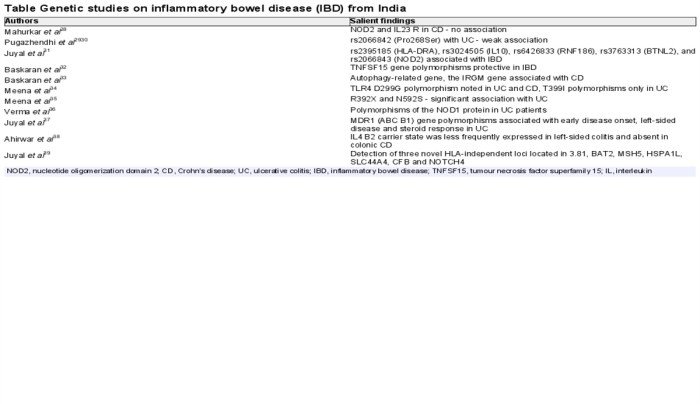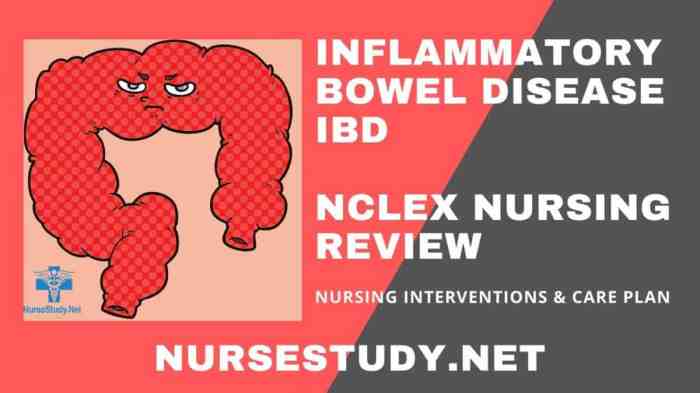The Inflammatory Bowel Disease HESI Case Study presents a comprehensive examination of this prevalent condition, exploring its impact, types, pathophysiology, clinical manifestations, diagnosis, management, and nursing care. By delving into a patient case study, the narrative offers a practical application of the concepts discussed.
Introduction

Inflammatory bowel disease (IBD) is a chronic condition that causes inflammation of the digestive tract. It is a major health concern, affecting millions of people worldwide. IBD can have a significant impact on an individual’s quality of life, leading to pain, discomfort, and disruption of daily activities.
There are two main types of IBD: Crohn’s disease and ulcerative colitis. Crohn’s disease can affect any part of the digestive tract, from the mouth to the anus, while ulcerative colitis affects only the large intestine (colon) and rectum.
Pathophysiology of IBD: Inflammatory Bowel Disease Hesi Case Study
The exact cause of IBD is unknown, but it is thought to be caused by a combination of genetic and environmental factors. It is believed that individuals with IBD have an immune system that is overactive and reacts abnormally to certain triggers in the environment.
This immune response leads to inflammation and damage to the digestive tract.
Genetic factors play a role in the development of IBD. Certain genes have been linked to an increased risk of developing the condition. However, it is important to note that not everyone who has these genes will develop IBD.
Environmental factors also play a role in the development of IBD. These factors include smoking, diet, and stress. Smoking is a major risk factor for IBD, and it can increase the severity of the disease. Diet may also play a role in the development of IBD, but more research is needed to confirm this.
Clinical Manifestations of IBD

The symptoms of IBD can vary depending on the type of IBD and the severity of the disease. Common symptoms include:
- Abdominal pain
- Diarrhea
- Weight loss
- Fatigue
- Blood in the stool
IBD can also lead to a number of complications, including:
- Strictures (narrowing of the intestine)
- Fistulas (abnormal connections between different parts of the intestine)
- Abscesses (collections of pus)
- Colon cancer
Diagnosis of IBD

The diagnosis of IBD is based on a combination of factors, including the patient’s symptoms, physical examination, and laboratory tests. The doctor may also order imaging studies, such as an X-ray or colonoscopy, to help confirm the diagnosis.
There is no single test that can definitively diagnose IBD. However, the doctor may use a combination of tests to rule out other conditions and to confirm the diagnosis of IBD.
Management of IBD
The goal of IBD management is to control symptoms, prevent complications, and improve the patient’s quality of life. Treatment options for IBD include:
- Medications
- Surgery
- Lifestyle modifications
The type of treatment that is best for a particular patient will depend on the severity of the disease and the patient’s individual needs.
Nursing Care for Patients with IBD
Nurses play an important role in the care of patients with IBD. They can help to educate patients about their condition, manage their symptoms, and prevent complications.
Nursing interventions for patients with IBD may include:
- Providing patient education
- Managing symptoms
- Preventing complications
- Supporting patients and their families
Nurses can help to improve the quality of life for patients with IBD by providing them with the support and education they need to manage their condition.
FAQs
What are the common symptoms of inflammatory bowel disease?
Abdominal pain, diarrhea, weight loss, fatigue, and blood in the stool.
How is inflammatory bowel disease diagnosed?
Through a combination of physical examination, laboratory tests, imaging studies, and endoscopic procedures.
What are the treatment options for inflammatory bowel disease?
Medications, surgery, and lifestyle modifications, such as dietary changes and stress management.